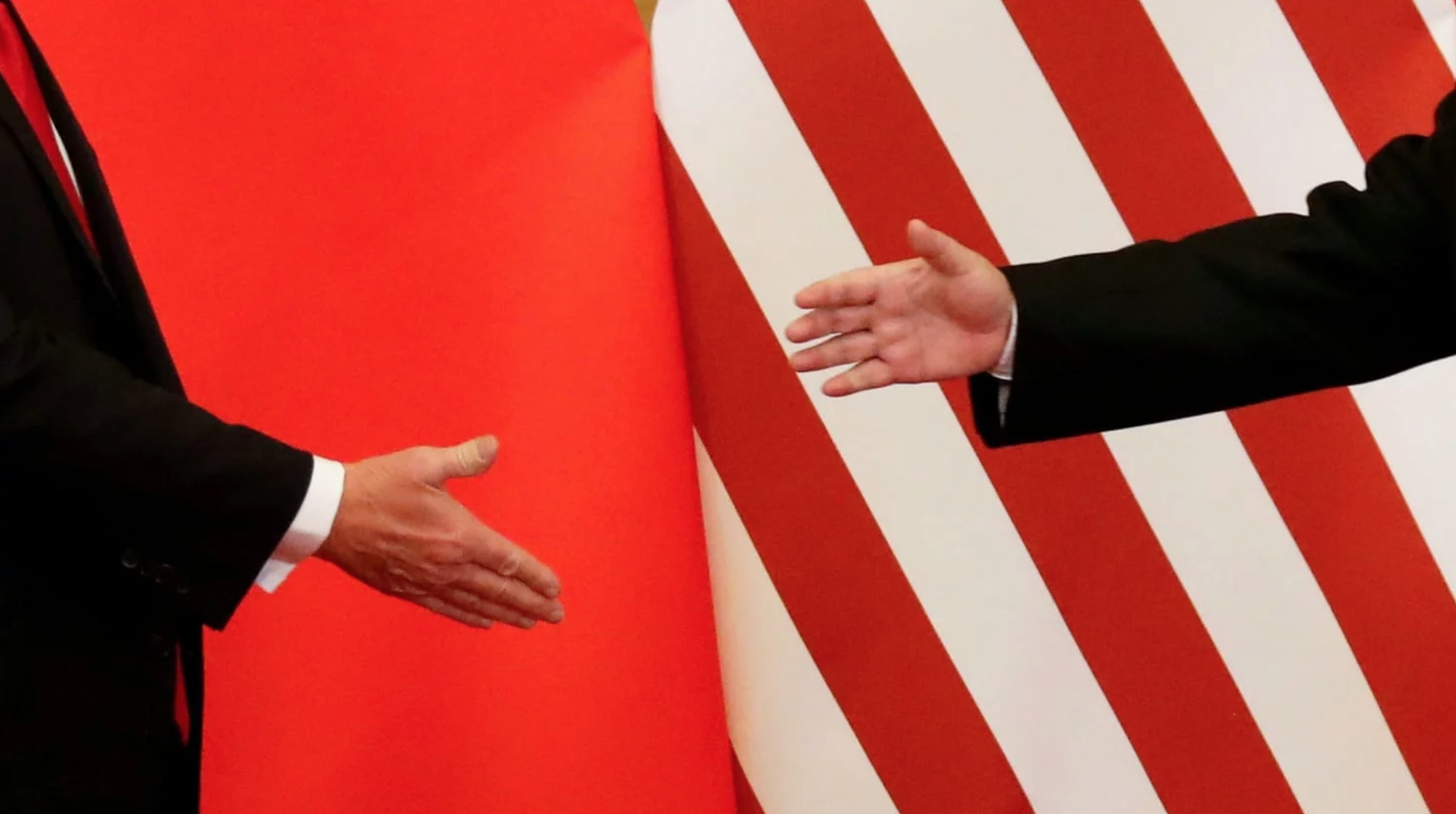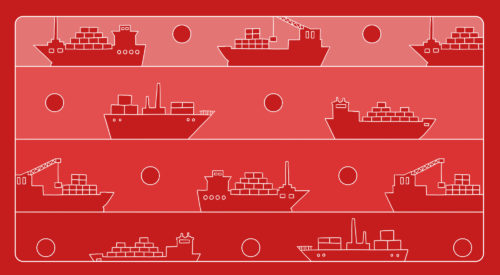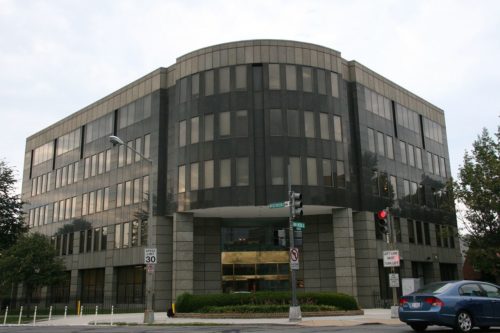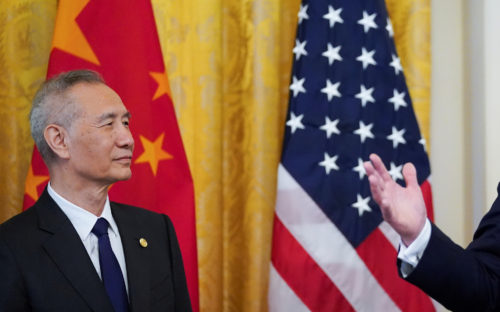Trade war, day 133: A letter from Beijing, and Peter Navarro in the naughty corner


News outlets are citing multiple unnamed sources confirming that China has presented an offer in writing in response to American trade demands, ahead of a planned meeting between Xí Jìnpíng 习近平 and Donald Trump on the sidelines of the G20 summit in Buenos Aires at the end of the month. However, it may not be enough to satisfy the Trump administration.
- “What they are offering is not new,” one source told CNN. “I think the two sides remain at an impasse. The channels are now open again, but there’s a lot of work to get to — whether it’s a modest de-escalation or ceasefire.”
- The offer reportedly includes “easing restrictions on foreign investment and eliminating requirements for joint ventures with Chinese partners in some sectors,” but does not cover the hot-button issues of technology transfer and intellectual property theft.
- Washington’s concerns about industrial policies such as Made in China 2025 are not addressed in the offer, another source told Bloomberg (porous paywall).
- At the very least, the offer is another in a growing string of goodwill gestures from the Chinese ahead of the Xi-Trump meeting, and China’s Commerce Ministry confirmed that high-level trade talks between the U.S. and China are ongoing.
- Meanwhile, hawkish trade adviser Peter “Death by China” Navarro is apparently in the naughty corner in the White House. His rant last week against China accusing “globalist billionaires” of trying to pressure Trump into a deal with China was apparently too much even for the Trump administration. CNBC reports:
The White House has deliberately curtailed trade advisor Peter Navarro’s public profile amid a clash with top economic advisor Larry Kudlow, a person with knowledge of the matter told CNBC on condition of anonymity…
…Kudlow told CNBC on Tuesday that Navarro “was not speaking for the president, nor was he speaking for the administration. His remarks were way off base. They were not authorized by anybody. I actually think he did the president a great disservice.”
- However, others say that “less visibility for Navarro isn’t seen translating into more acquiescence on trade by the White House.” United States Trade Representative Robert Lighthizer, “who drove the initial investigations used to justify the U.S. tariffs, is also a hardliner on China.”
Other trade-war-related news:
- Impact on companies and China’s economy
China’s top bank cancels sale of dollar bonds to U.S. buyers / Bloomberg (porous paywall)
“China’s biggest lender pulled an offering of dollar bonds in the U.S. market on Wednesday, adding to concern that American investor demand for Chinese offerings is dwindling amid the trade war. Industrial & Commercial Bank of China (ICBC) had been marketing three-year and five-year floating-rate notes through its New York branch, then decided not to proceed with pricing.”
China Inc’s mounting stress: Funding woes, shrinking profit growth and a trade war / Reuters
“A rapid bruising of consumer confidence amid trade tension with the United States has added pain, creating a major challenge for Beijing as it looks to keep the economy on track after it expanded at its weakest pace since 2009 in the third quarter.
Foreign investment in China stable in October, but US investment weak due trade war / SCMP
“FDI, a sign of international confidence in the world’s second-biggest economy, rose to US$9.7 billion in October, up 7.3 percent from a year earlier, the Ministry of Commerce said on Thursday..”
China’s growth seen slipping to 6 per cent as trade war kicks in / Australian Financial Review
“While next year’s target has not yet been set, the fact Beijing is allowing prominent economists to speculate about growth slowing to 6 per cent offers some indication of the thinking in Beijing.”
- Challenges to China’s regional influence
Mike Pence to unveil rival to ‘dangerous’ Belt and Road Initiative at Apec summit / SCMP
“Pence’s speech in Port Moresby on Saturday will promote a ‘private-sector driven model’ and outline how ‘US companies really provide jobs and come to the region and deliver prosperity to the region.”
Chinese private investment in Belt and Road projects may be losing steam / SCMP
“Chinese private firms are less enthusiastic about investing in the country’s vast trade and infrastructure strategy and Beijing is becoming more wary of throwing money at the project as it comes under pressure from the trade war and falling forex reserves, a US think tank says.” - Australia’s role
The China shift in Pacific trade / Devpolicy Blog
“Whatever Xi Jinping announces on the sidelines of APEC, Australia’s declining dominance as a trading partner for Pacific economies should be part of any conversation on influence.”
More than words needed to meet the China challenge / The Interpreter
“Newly announced U.S. ambassador-designate to Australia, Arthur Culvahouse, comes to Australia at a moment of significant tension in U.S.-China relations…. If Culvahouse has an advantage, it is that Australia’s political leaders still want to believe that the U.S. is committed to facing down China.” - Aggression and military competition in Pacific
Military competition in Pacific endures as biggest flash point between U.S. and China / NYT (porous paywall)
“Trade disputes have for months been the focus of souring relations between the United States and China. But intractable problems in the South China Sea and the Taiwan Strait underscore that competition for dominance of the Pacific Ocean remains the most volatile source of conflict between the two nations — and the tensions are rising.”
Mike Pence’s message to China: aggression has no place in Indo-Pacific / SCMP
“U.S. Vice-President Mike Pence has delivered a veiled warning to Beijing over its rising strength in the Indo-Pacific, saying aggression should not be tolerated and offering reassurances of Washington’s commitment to the region.
Duterte says China ‘already in possession’ of South China Sea, tells US to end military drills / Straits Times
President Rodrigo Duterte said on Thursday November 15 China was “already in possession” of the South China Sea, and that military drills by the United States and its allies were creating “frictions” that were derailing efforts to settle rows over these waters between Beijing and its neighbours. “China is already in possession (of the South China Sea). It’s now in their hands. So why do you have to create frictions… that will prompt a response from China?”
Previously in The China Project’s trade war coverage:
Trade war, day 132: Xi feted in Papua New Guinea, as U.S. panel warns of Chinese tech dominance





